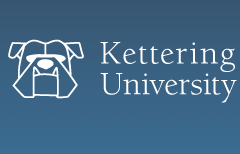Redesigned Application-oriented Integral Calculus Curriculum
Document Type
Presentation
Publication Date
6-2018
Publication Title
ASEE PEER
Conference Name
2018 ASEE Annual Conference & Exposition
Abstract
This paper presents the development of application based curriculum for Integral Calculus course, a project funded by KEEN Foundation. Textbook examples are frequently disconnected from students’ immediate environment or use past data of little interest. In addition, information given on the subject is at most sketchy and the practical purpose of solving these examples is not clear. This lack of vivid applications in calculus courses motivated us to develop content that can be used by instructors to enhance students’ learning experience by engaging them directly in solving problems and applying attained skills to real life situations relevant to students’ environment. The main focus of this work is to make the integral calculus course current, engaging, and relevant for students. The objective is to create a learning environment where calculus comes to life through real world examples, real and relevant data, and through the use of physical objects. We do not adopt the Project Based Learning approach however, but rather supplement the traditional lecture with motivating examples and multiple projects. Our pedagogical approach includes curriculum enhancement, deep learning, student engagement and entrepreneurship. We provide examples and projects which have the potential to capture students’ attention and will be useful in other courses in mathematics, science, and engineering. This approach is intended to spark curiosity in students, demonstrate usefulness of the theory they study, and to answer the question “Where am I going to use this?” We divided the curriculum into three fundamental modules: (1) Integration of basic functions resulting from mathematical models and from observed data; (2) Advanced applications of integration; (3) Applications of infinite sequences and series. The proposed course learning outcomes (CLOs) are linked to KEEN Student Outcomes, particularly those that are measurable. Assessment will include student surveys, retention, grades, achievement of CLO’s, and quality of students’ projects. In order to keep the balance between mathematical rigor and engineering and science relevance, the team was designed to consist of engineering and mathematics faculty. Similar developments are conducted in single variable differential calculus and multivariate calculus to create a consistent approach in the entire calculus sequence. All motivating examples and mini projects for the entire calculus sequence will be made available on line.
Rights Statement
© 2018 American Society for Engineering Education
Recommended Citation
Gawarecki, Leszek Dr.; Dong, Yaomin; and Rablau, Gina, "Redesigned Application-oriented Integral Calculus Curriculum" (2018). Mechanical Engineering Presentations And Conference Materials. 126.
https://digitalcommons.kettering.edu/mech_eng_conference/126

